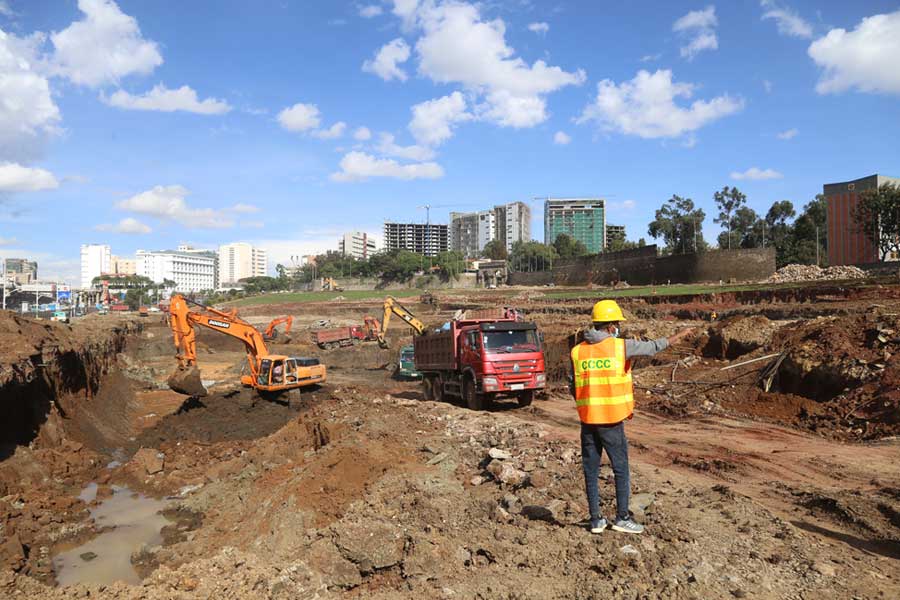
Agenda | May 09,2020
Apr 30 , 2022
By Halima Abate (MD)
In a public administration at any level, in any setting, there is always a demand in operations for a move away from civility and towards productive governance. However, as there are factors beyond our control and influence, there is a logic to focusing on the achievable. Deliberate attention should be considered as existing complex problems continue to evolve, joined by emergent issues every day.
“Politics is the art of the possible, the attainable – the art of the next best,” Otto von Bismarck once noted.
It is true. There are always constraints on the fulfilment of good governance. Hence, the concept of the term, amelioration, is relevant as public administrators are never able to address all of the public's problems. Amelioration refers to improvement – a striving to do better, combined with the recognition that it will never be possible to achieve a perfect outcome that is acceptable to all. Hence, we need to be nuanced about expectations of creating enabling environments on the one hand and “getting things done” on the other where public administration is concerned. Progress does not come not from revolutionary turnarounds or the purging of established organisations. It instead emanates from adjustments in the perspective, manning procedures, and measures of the existing framework. The application of amelioration, thus, might be vital.
It does not take a genius to notice that the failure of governance is associated with limited resources, poor checks and balances and lacklustre political support. This may sound negative, but considering amelioration, the following takeaways should be kept in mind. The first is to keep focused on making incremental changes on an ongoing basis, and avoiding frustration if one does not achieve a perfect outcome. The other is emphasising the aspiration to excellence and doing best rather than overpromising the deliverables.
Practising the approaches in this way might support the development of a more realistic, more objective view of the challenges faced by public administrators. Besides, visualising the extent of challenges for the people will facilitate better engagement and create empathy in pursuing solutions to governance problems. Aside from exercising amelioration, embracing compassion and positivity as core governance principles are necessary because it is executable across all contexts of public service. Being positive by continuing to pursue solutions to governance problems and showing empathy in our professional interactions in ways that build citizens' trust can be constructive rather than throwing our hands in the air and complaining about politics.
Politicians will come and go, crises will eventually end and future problems are inevitable. What will not change is the necessity of public administration dedicated to the public; one that carries out its duties with core values of efficiency, effectiveness, economy and equity. There is a trend to use a political end to judge the means of public administration instead of using it as an efficiency criterion to judge the ends of a promised public service or agenda. Besides, as there is no tradition in training public administrators, perhaps because it has usually been thought more important for administrators to be responsive than skillful, the application of time and power to build a smoothly running organisation to achieve the settled social objectives has been disregarded.
Hence, the provision of a constructive continuity in government through reevaluating the concepts of public welfare, unity, democratisation and equality will provide positive results. Put together, the approaches of amelioration will provide a push for greater responsibility for achieving public value and enhancing efficiency by influencing the purpose, structure, and goals of public organisation.
PUBLISHED ON
Apr 30,2022 [ VOL
23 , NO
1148]


Agenda | May 09,2020

Fortune News | Jun 14,2020

Fortune News | Apr 22,2023

My Opinion | Feb 16,2019

Radar | Nov 20,2023

Editorial | Mar 13,2021

Commentaries | Nov 14,2020

Viewpoints | Apr 26,2025

Editorial | May 16,2020

Life Matters | Nov 07,2020

Photo Gallery | 174706 Views | May 06,2019

Photo Gallery | 164926 Views | Apr 26,2019

Photo Gallery | 155160 Views | Oct 06,2021

My Opinion | 136717 Views | Aug 14,2021
Editorial | Oct 11,2025

Dec 22 , 2024 . By TIZITA SHEWAFERAW
Charged with transforming colossal state-owned enterprises into modern and competitiv...

Aug 18 , 2024 . By AKSAH ITALO
Although predictable Yonas Zerihun's job in the ride-hailing service is not immune to...

Jul 28 , 2024 . By TIZITA SHEWAFERAW
Unhabitual, perhaps too many, Samuel Gebreyohannes, 38, used to occasionally enjoy a couple of beers at breakfast. However, he recently swit...

Jul 13 , 2024 . By AKSAH ITALO
Investors who rely on tractors, trucks, and field vehicles for commuting, transporting commodities, and f...

Oct 11 , 2025
Ladislas Farago, a roving Associated Press (AP) correspondent, arrived in Ethiopia in...

Oct 4 , 2025
Eyob Tekalegn (PhD) had been in the Governor's chair for only weeks when, on Septembe...

Sep 27 , 2025
Four years into an experiment with “shock therapy” in education, the national moo...

Sep 20 , 2025
Getachew Reda's return to the national stage was always going to stir attention. Once...

Oct 12 , 2025
Tomato prices in Addis Abeba have surged to unprecedented levels, with retail stands charging between 85 Br and 140 Br a kilo, nearly triple...

Oct 12 , 2025 . By BEZAWIT HULUAGER
A sweeping change in the vehicle licensing system has tilted the scales in favour of electric vehicle (EV...

A simmering dispute between the legal profession and the federal government is nearing a breaking point,...

Oct 12 , 2025 . By NAHOM AYELE
A violent storm that ripped through the flower belt of Bishoftu (Debreziet), 45Km east of the capital, in...